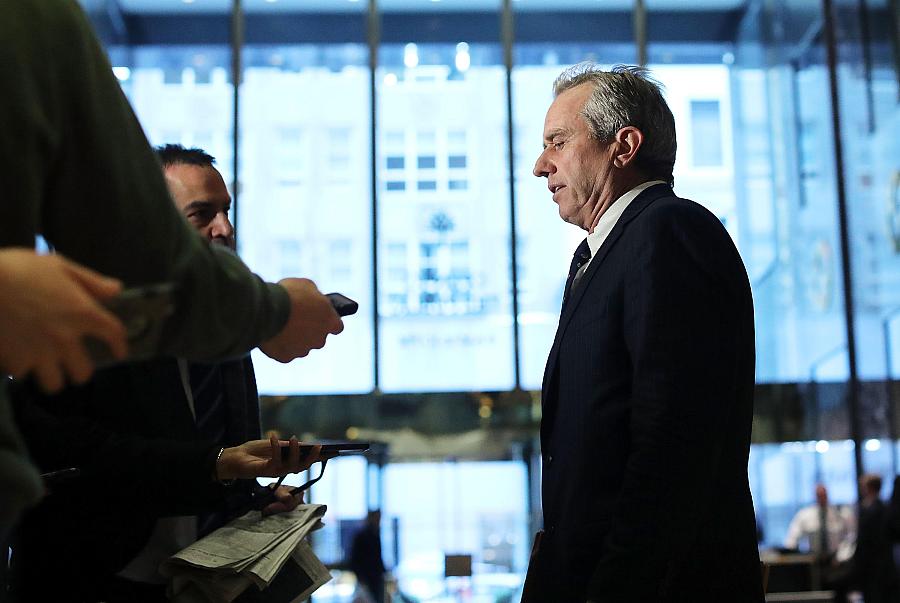It’s been an unbelievable news cycle in the vaccine wars

It’s been an absolute bruiser of a week in the vaccine wars.
First came the social media dust-up triggered by Cleveland.com, the website affiliated with The Plain Dealer. In an impassioned, ranting column, Dr. Daniel Neides, the medical director and chief operating officer of the Cleveland Clinic’s Wellness Institute, wrote:
Does the vaccine burden — as has been debated for years — cause autism? I don't know and will not debate that here. What I will stand up and scream is that newborns without intact immune systems and detoxification systems are being over-burdened with PRESERVATIVES AND ADJUVANTS IN THE VACCINES.
As you might imagine, that didn’t go over well with Dr. Neides’ bosses at the Cleveland Clinic, nor with medical experts, scientists and many readers of Cleveland.com. Neides, who is board-certified in family medicine, was forced to walk back the post and issue an apology while the embarrassed hospital system vowed to pursue “appropriate discipline.” By then the media reports and Twitter flurries were piling up fast. Cleveland.com was left scrambling to explain how the column was published — and then unpublished — with zero editorial oversight, while Neides’ medical career was suddenly under sharp scrutiny. “Neides often pitches therapies focused more on metaphysics than science,” STAT reported. Cleveland Clinic, meanwhile, was accused of promulgating “post-truth medicine.”
You might think that brouhaha at one of the nation’s top-ranked hospital systems would surely be the top vaccine-related controversy of the week. You’d be wrong, and to a stunning degree. On Tuesday, reporters caught up with anti-vaccine activist Robert F. Kennedy Jr. after a meeting with President-elect Donald Trump. Trump had asked Kennedy to lead a new government commission on vaccine safety and science, Kennedy said. When asked what his policy priorities would be in such a role, Kennedy said:
To make sure we have scientific integrity in the vaccine process for efficacy and safety of vaccines. President-elect Trump has some doubts about the current vaccine policies, he has questions about them. His opinion doesn’t matter, but the science does matter. We ought to be reading the science and we ought to be debating the science. Everybody ought to be able to be assured that the vaccines that we have — he’s very pro-vaccine, as am I — are as safe as they can possibly be.
Except that last part is not quite true, and a bevvy of media accounts emphatically said so. NBC News’ Benjy Sarlin cut to the point near the top of his story:
Both Trump and Kennedy have spread fringe theories linking vaccines to autism in children, an idea that medical experts overwhelmingly reject and have warned is endangering public health by discouraging parents from immunizing their kids.
No false equivalence there.
Similarly, in the lead of The New York Times’ story, the reporting trio wrote that Kennedy’s possible appointment “spread alarm among medical experts that Mr. Trump could be giving credence to debunked conspiracy theories about the dangers of immunizations.”
The Washington Post didn’t mince words either: “Every relevant scientific and medical organization has examined the evidence and concluded that vaccines are safe and effective and that the real danger lies in skipping or delaying them.”
STAT meanwhile came out firing hard with three stories in two days, including a fact-checking piece on the science behind vaccines, a look at what authority Trump actually will have on the matter, and a deeply critical dispatch from science writer Seth Mnookin, who has extensively reported on the vaccine wars, on how Kennedy arrived at the anti-vaccine views he’s cultivated over the past decade and a half.
This is strong, on-point coverage on a seemingly dead issue that won’t die. The vaccine debate has been given new life by a virulent strain of anti-science now in ascendancy.
It should be noted that in the hours after Kennedy’s statement to reporters, a Trump spokeswoman seemed to undercut Kennedy’s announcement by insisting that no decisions had been made on “forming a committee on autism, which affects so many families.”
But by then the vaccine-autism bell had already been rung, for the second time in one week.
In a recent post, CHJ contributing editor William Heisel cautioned journalists “about not making folk heroes out of vaccine doubters by refraining from using over-the-top language when characterizing their views.” In another post, he added: “You will never penetrate the anti-vaccine echo chamber with demonization and cries of outrage. You clearly won't win just on science either. The trick is to stay as focused on the facts as possible and not create another anti-vaccine folk hero.”
The bulk of this week’s media coverage hammered away at the facts on vaccines early, often and unambiguously. Whether that will be enough to keep the Trump-boosted Kennedy from being further elevated to anti-vaccine folk hero in an era of rampant fake news and social media silos remains to be seen.
**

